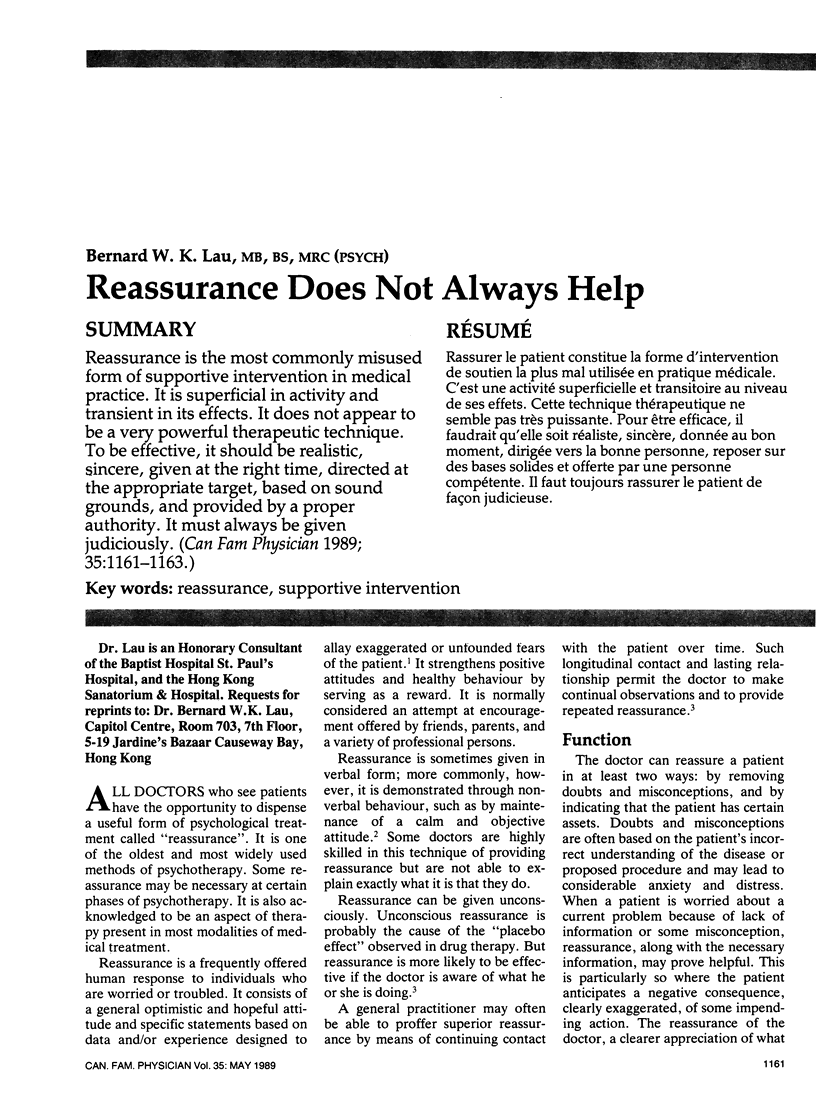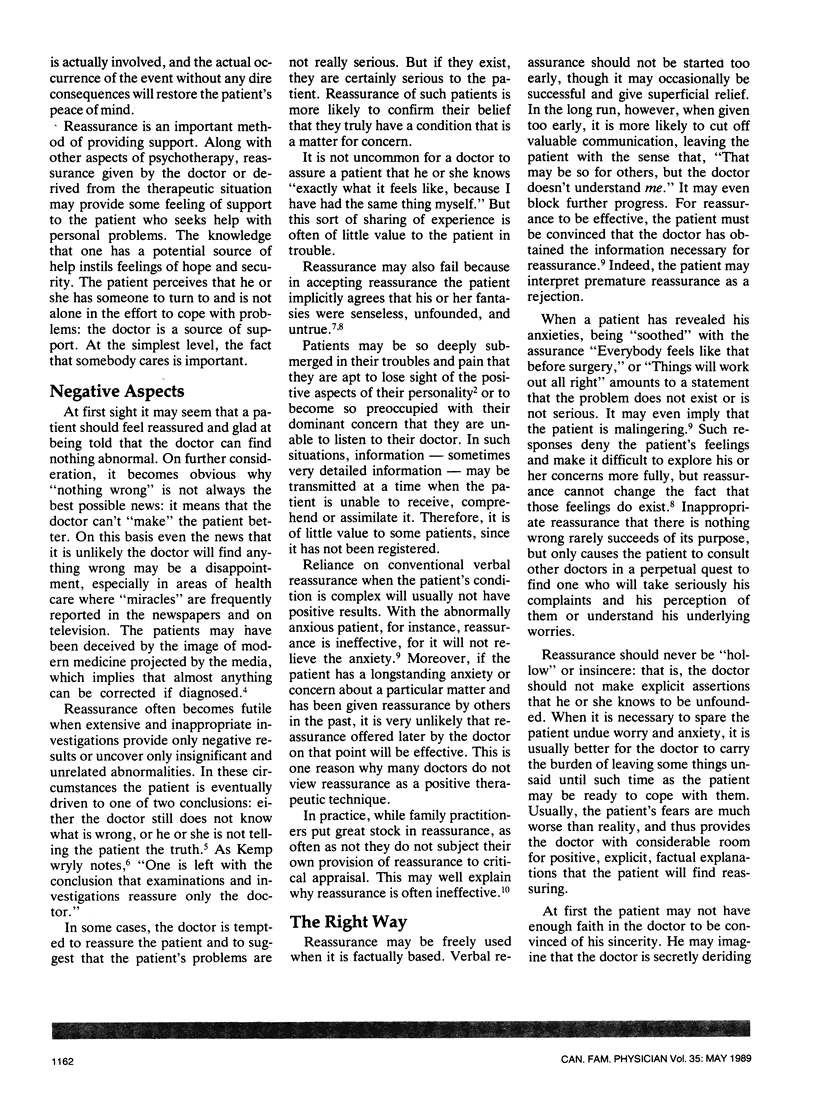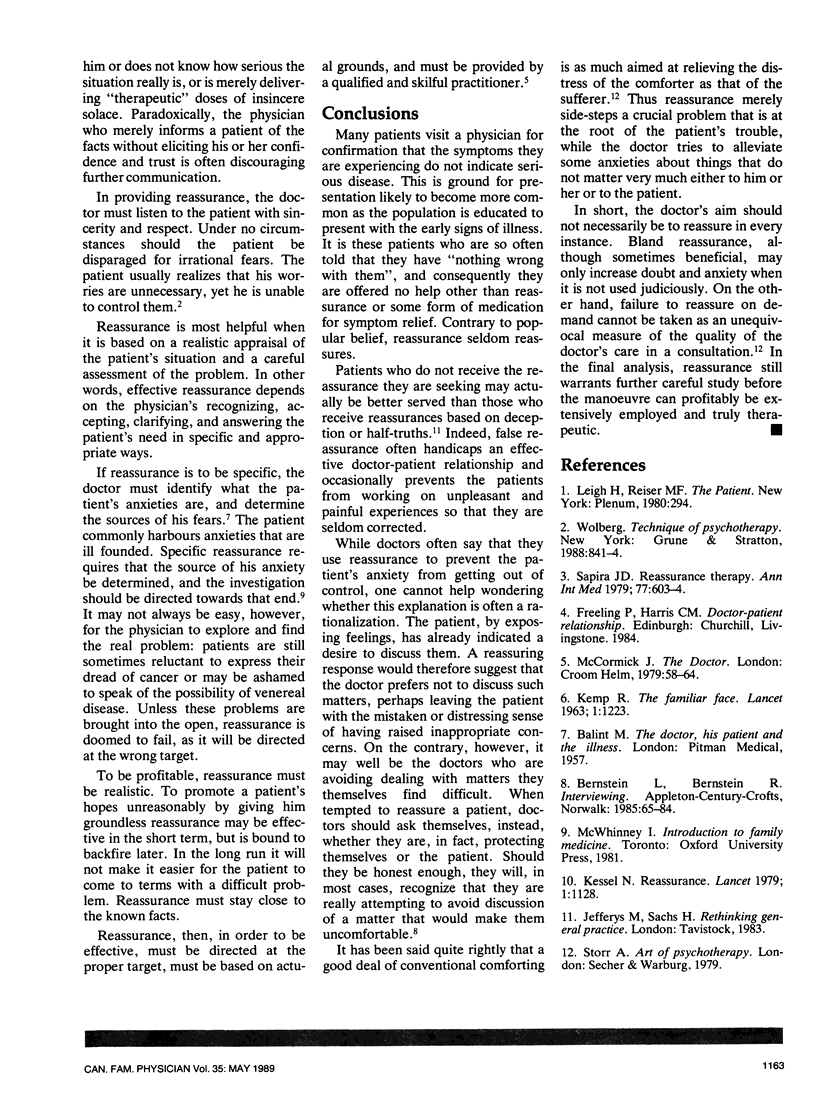Abstract
Reassurance is the most commonly misused form of supportive intervention in medical practice. It is superficial in activity and transient in its effects. It does not appear to be a very powerful therapeutic technique. To be effective, it should be realistic, sincere, given at the right time, directed at the appropriate target, based on sound grounds, and provided by a proper authority. It must always be given judiciously.
Keywords: reassurance, supportive intervention
Full text
PDF


Selected References
These references are in PubMed. This may not be the complete list of references from this article.
- KEMP R. The familiar face. Lancet. 1963 Jun 8;1(7293):1223–1226. doi: 10.1016/s0140-6736(63)91859-2. [DOI] [PubMed] [Google Scholar]
- Kessel N. Reassurance. Lancet. 1979 May 26;1(8126):1128–1133. doi: 10.1016/s0140-6736(79)91804-x. [DOI] [PubMed] [Google Scholar]
- Sapira J. D. Reassurance therapy. What to say to symptomatic patients with benign diseases. Ann Intern Med. 1972 Oct;77(4):603–604. doi: 10.7326/0003-4819-77-4-603. [DOI] [PubMed] [Google Scholar]


